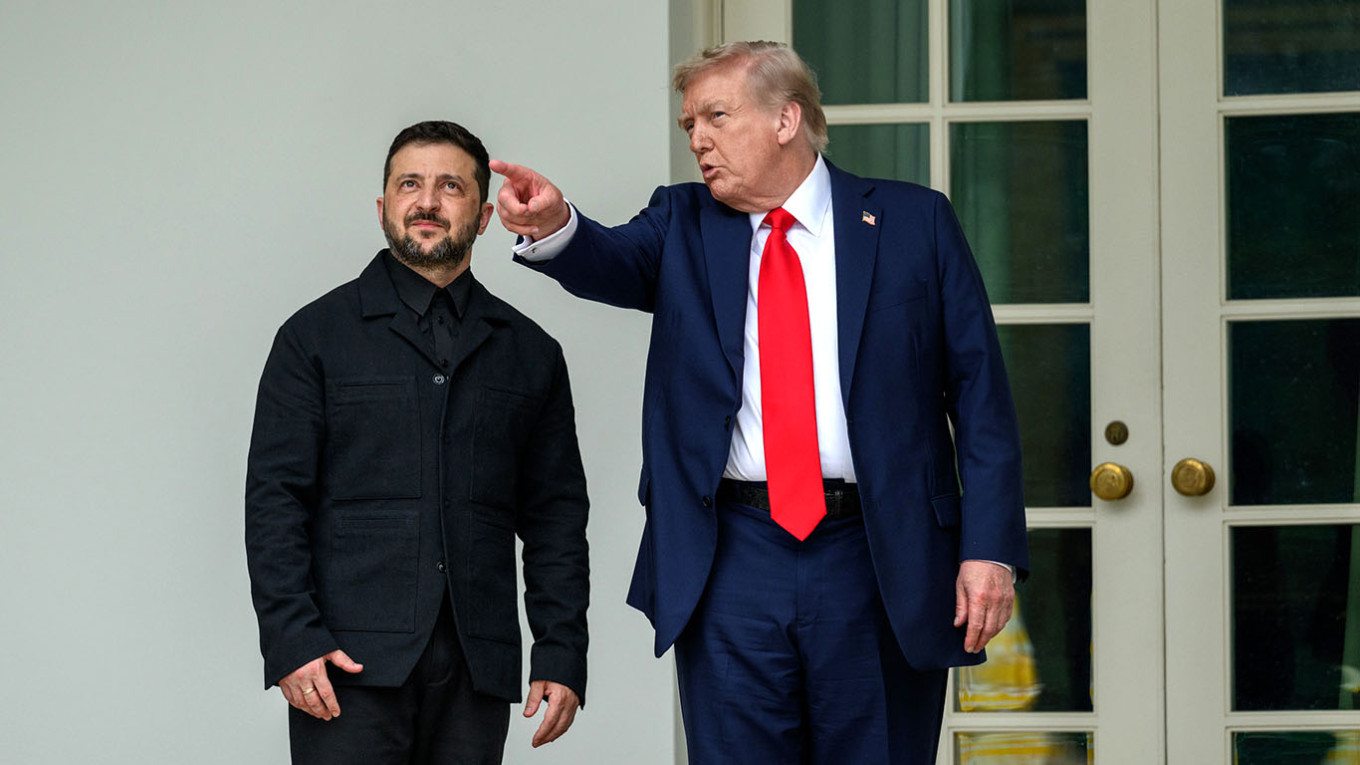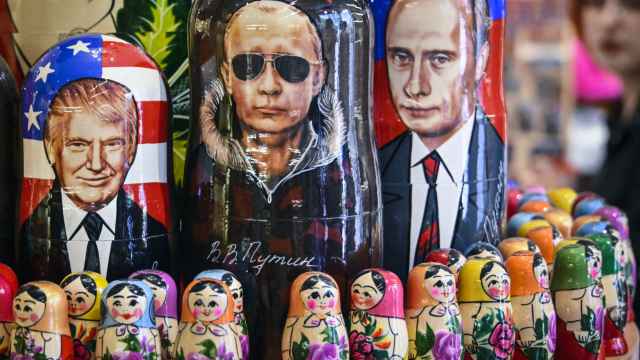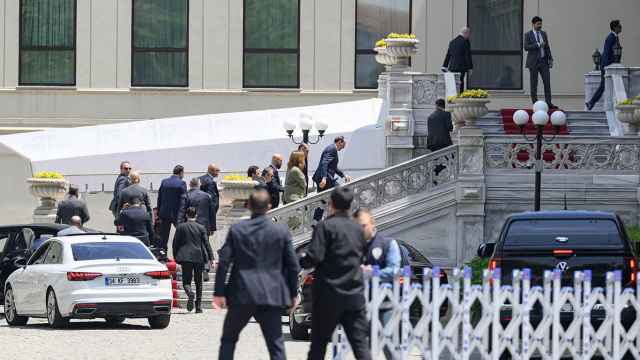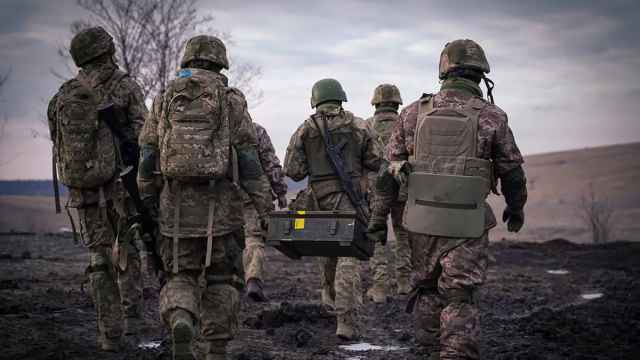At the recent summit meeting between Donald Trump and Vladimir Putin in Anchorage, the United States president apparently hoped that his demonstrative flattery would win the Russian leader’s favor. Behind this misjudgment lies not only the general geopolitical naivety of Trump and his entourage. More important still seems to be a fundamental misunderstanding of the reasons for the war in the White House.
The narrative that the West is to blame for Moscow’s aggression because of NATO's eastward expansion or a lack of Western respect for Russia is widespread not only in Europe but also in the U.S. Trump and his entourage apparently believe that by acting friendly toward Putin, they can neutralize Russia's publicly proclaimed reason for attacking Ukraine. If there is no longer any hostility between the U.S. and Russia, why continue waging the war?
However, Russia's aggression is not a reaction to the West’s behaviour. It has national historical, ideological, cultural, and political causes. Moscow's military expansion is rooted in Russian imperial traditions, domestic political legitimacy mechanisms, geostrategic ambitions and irredentist claims to former territories of the Tsarist Empire and Soviet Union.
Regardless of Western actions and reactions, Putin wants to enlarge and consolidate his power and that of Russia. He, and the current majority of Russians, want above all to bring Ukraine back under Moscow's control. That does not have to happen via brutal military force and mass terror, as is currently happening week after week in occupied regions of Ukraine. Not only ordinary Russians, but also the Kremlin would like to achieve Ukraine’s subjugation through negotiations, without any more costly fighting.
For Trump, things are much simpler: the war in Ukraine is just an annoying problem he wants to get rid of. He maneuvered himself into a dead end during the election campaign when pompously announcing that he would end the war within 24 hours. Several months later, he has nothing tangible to show for it.
The domestic pressure on Trump is mounting. Despite intense pro-Russian and anti-Ukrainian propaganda by ultra-conservative U.S. media, Ukraine's popularity remains high among ordinary Americans. Polls even show that support for Ukraine and U.S. arms deliveries to Kyiv has recently risen among Republican voters. This means that the future direction of Washington’s policy toward Russia is not set in stone and a return to active American aid to Ukraine is possible.
In the interregnum until a possible normalization in Washington, Europe's stance will be decisive. The roles have been reversed: Europe used to push for concessions to Moscow; now the once loudly pro-Ukrainian United States is more inclined to side with Russia.
Military support must now come primarily from Europe. If they fail to act decisively, they will only be more exposed to Russia as a result.
What is at stake in Ukraine are fundamental principles that have underpinned international relations since 1945. With its openly terrorist warfare since 2022, Moscow is trampling on human rights on a massive scale. Its annexations have undermined the foundations of the rules-based order: the territorial integrity and national sovereignty of states.
As a Soviet republic, Ukraine was a founding member of the UN. Since gaining independence in 1991, it has ratified the Nuclear Non-Proliferation Treaty and become a participant in the Organization for Security and Co-operation in Europe and a member of the Council of Europe. If the country is dismembered and robbed of its independence, something similar could happen to other UN member states. If Ukraine falls, there is a threat of a return to the global disorder that prevailed before 1945.
The means to prevent this are obvious: sanctions against Russia and military and financial support for Ukraine. However, even after more than 11 years of war, these instruments are still being used inconsistently. For example, approximately $300 billion in Russian state funds remain frozen in Europe. Only the interest on these funds has been used to support Ukraine so far.
There are still dozens of oil tankers in Russia's shadow fleet that are not, or are only partially, sanctioned. Other loopholes for circumventing sanctions also remain numerous and there is still a lot of Western technology being used in Russian missiles, drones, and other military equipment.
Above all, the quantity and quality of Western military support remains insufficient. Too few and too outdated weapons are reaching Ukraine. The most important task of a large part of Western, and especially European, armaments industry is to enable the protection of NATO and EU states and their allies from Russia.Since 2022, the equipment produced could be used in Ukraine to weaken the potential enemy. However, most of the West's best weapons stand idle in bases, warehouses, and hangars instead of fulfilling their purpose in the Donbas, around Kharkiv, or on Crimea.
Only external and internal pressure will force Moscow to engage in serious negotiations. Neither Trump's gestures of friendship, nor Europe's diplomatic efforts, nor mediation attempts by third countries will succeed on their own.
Since 2014, the Kremlin has been happy to participate in peace talks. However, this is mostly just a negotiation theater to gain time as well as to sow confusion and discord among its opponents. Sometimes — as is currently the case in communication with the United States — talks even offer an opportunity to gain advantages that would otherwise have to be achieved by military means. This shows that no amount of dialogue will dampen Russia's appetite for expansion.
A Message from The Moscow Times:
Dear readers,
We are facing unprecedented challenges. Russia's Prosecutor General's Office has designated The Moscow Times as an "undesirable" organization, criminalizing our work and putting our staff at risk of prosecution. This follows our earlier unjust labeling as a "foreign agent."
These actions are direct attempts to silence independent journalism in Russia. The authorities claim our work "discredits the decisions of the Russian leadership." We see things differently: we strive to provide accurate, unbiased reporting on Russia.
We, the journalists of The Moscow Times, refuse to be silenced. But to continue our work, we need your help.
Your support, no matter how small, makes a world of difference. If you can, please support us monthly starting from just $2. It's quick to set up, and every contribution makes a significant impact.
By supporting The Moscow Times, you're defending open, independent journalism in the face of repression. Thank you for standing with us.
Remind me later.








